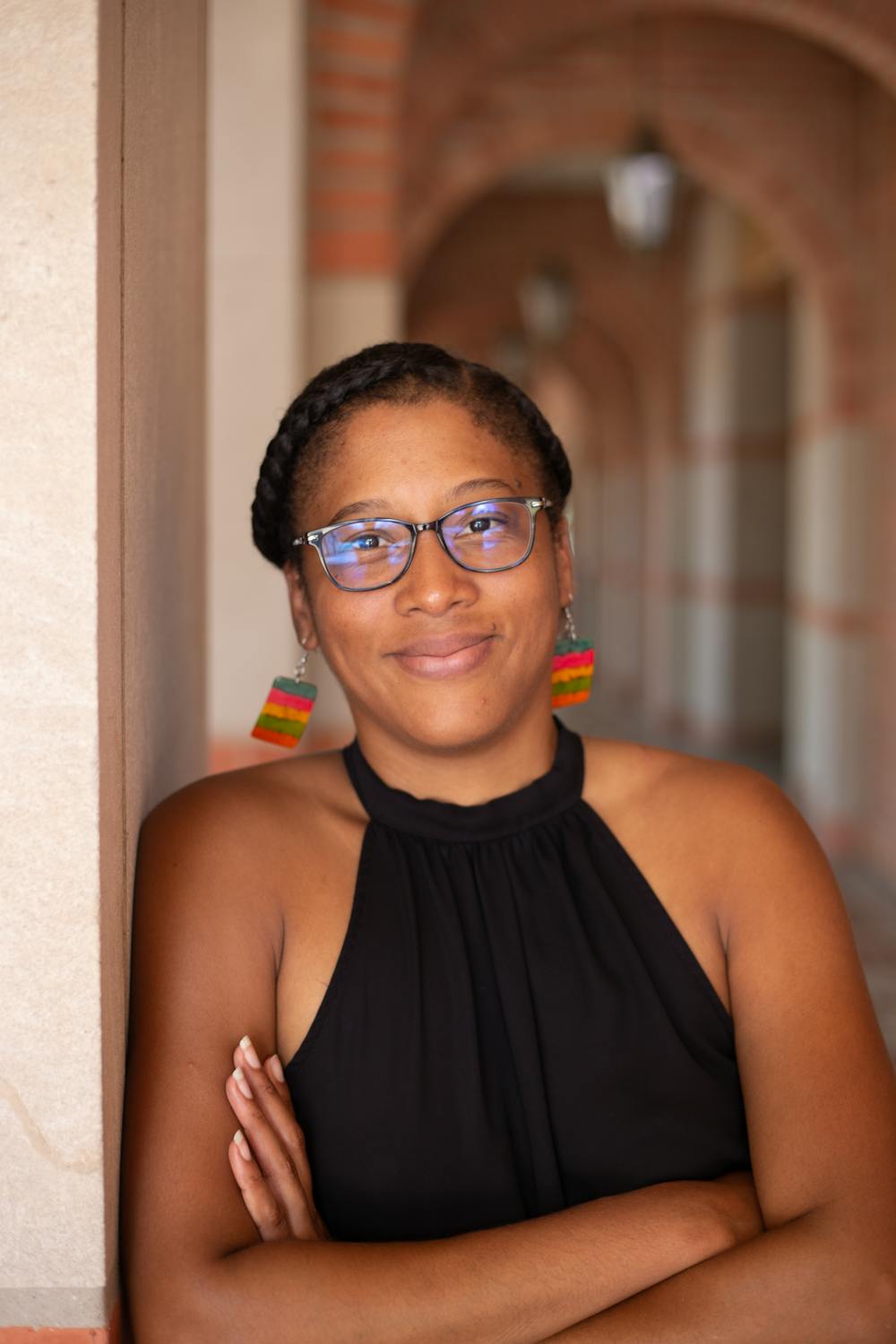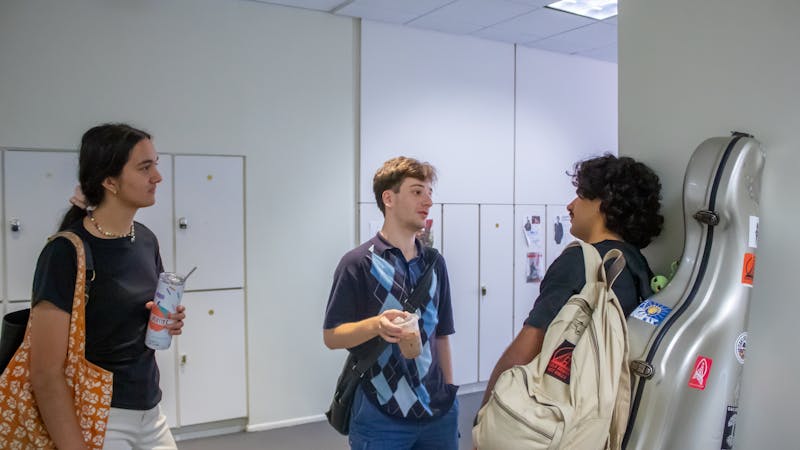Linsey Sainte-Claire wants to share her knowledge

Zeisha Bennett / Thresher
Linsey Sainte-Claire left home at age 15. She moved from her native French Guiana to attend school in Paris, France in hopes of receiving a better education than she could get in the Caribbean.
“It was very tough, especially because it was not my choice. There is a false idea that studying in France will lead to bigger opportunities, and especially for parents of Afro descent,” Sainte-Claire, an assistant professor in the Modern and Classical Literatures and Cultures department, said. “My mom decided to send me to France after my first year of high school, because she believed that … having a degree that says that it was given by someone in Paris would have a higher value than a degree from French Guiana.”
With her Parisian degree, Sainte-Claire went on to attain her doctorate from the University of Chicago. Before Rice, she taught at Davidson College and Middlebury College.
At Middlebury, she was named a Public Humanities Lab Initiative Fellow and given the opportunity to create a public-facing project and accompanying seminar. Sainte-Claire taught a class titled “Education in the Caribbean.”
“I was able to ask students to create two book pages that will help students from the Caribbean relate to what we were learning,” Sainte-Claire said. “I wanted to make sure that [Caribbean students’] learning was not focused only on the western world, but that their cultural setting and identity was also reflected in those book pages.”
Sainte-Claire said that this project, along with much of her own writing and research, was inspired by her personal experience with education in French Guiana. French Guiana is one of France’s five overseas departments, along with Guadeloupe, Martinique, Mayotte and Réunion.
Departments are roughly analogous to states in the U.S. Overseas departments are represented in France’s national governing bodies and are subject to the same laws and regulations as mainland departments, according to Encyclopedia Britannica. Education in France’s overseas departments is based around the curriculum used in mainland France, which typically includes little to no information about the history, geography or culture of the departments.
“[The project] was very much inspired by my own experience as someone growing up in an overseas department of France, but only [studying] the history of mainland France rather than its overseas departments,” Sainte-Claire said. “As someone who is originally from French Guiana [and] moved to France when she was 15 … it was really important for me to study the political facets and history of my people.”
Originally a farming colony for sugar plantations, French Guiana had a large population of enslaved Africans until 1794, when France abolished slavery in its overseas colonies. It was later used as a penal colony, then as a home for resettled Hmong and Maroon refugees from Laos and Suriname, respectively. Brazilian and Haitian economic migrants also make up a significant portion of the population, as do indigenous groups that inhabited the area prior to French colonization, according to the CIA World Factbook.
With its multicultural roots, French Guiana has become quite different from mainland France, even developing its own dialect of Creole French.. Sainte-Claire says it is this varied, global history of the Caribbean that is often what draws students to her classes.
“I've had students who have ties to Africa or the African diaspora who want to learn more about the history and the political settings and experiences of African people,” Sainte-Claire said. “I also have students who are just curious to know more about this history that they've never been exposed to.”
For Sainte-Claire, the importance of learning a language lies not just in the language itself, but in the lives of those who speak it.
“You can build a community or at least have a sense of a community when you learn a language,” Sainte-Claire said. “Learning the language also allows you to get a deeper insight into another culture that you may not know.”
By extension, Sainte-Claire applies the same philosophy to her students. Sainte-Claire sees the classroom as a safe place to have cultural conversations together with her students.
“For students who are coming to my classes … what I want them to know is that we're all coming into the classroom as human beings,” Sainte-Claire said. “We're all coming to share knowledge.”
More from The Rice Thresher

Over 1,000 students petition against new meal plan
When Konstantin Savvon opened the Housing and Dining email announcing the new unlimited meal plan, he was instantly concerned about the impact on off-campus students like himself.

Rice shuttle bus drivers reflect on changes and connections behind the wheel
Martine Stewart has spent the past year behind the wheel of Rice’s greater loop shuttle, circling the inner campus from the early morning to late afternoon. She said she has come to recognize many of her regular riders – not just their faces, but the exact spots where they wait to be picked up.

Music majors at Rice’s Shepherd School tackle busy schedules, future goals
Cirdan Vonnahme began playing the cello at 4 years old. After winning his first competition at 11 and debuting with an orchestra, he realized he wouldn’t mind playing the cello for life.

Please note All comments are eligible for publication by The Rice Thresher.